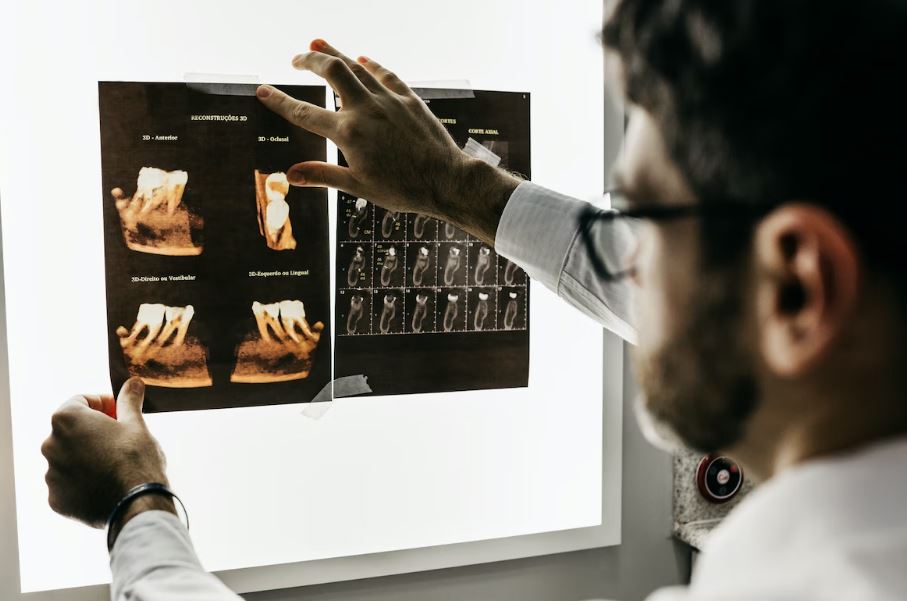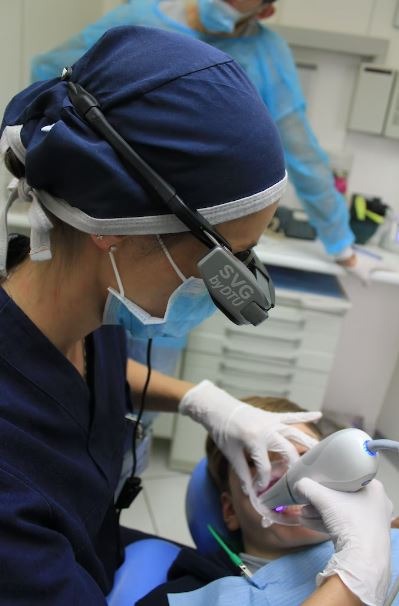How frequently should one visit a dentist? The answer may vary depending on your unique situation and risk factors and is not as simple as you might think. While some dental offices might set up annual appointments, some dentists advise that you visit for a checkup and cleaning every six months. Your dentist might advise more frequent visits if you are dealing with a persistent oral health issue. Everyone has unique oral health requirements and risk factors, and the frequency of checkups should reflect this. Discuss your level of risk and how often you should visit for an oral health checkup with your oral health professional.
The Difference Between Dental Checkups and Dental Treatments
Dental checkups are regular appointments that include cleaning and examination. Dental treatments are specialized visits used to address problems with fillings, thorough cleanings, root canals, tooth removal, and other procedures. While dental checkups have a regular schedule, dental treatments are scheduled as needed. The need for dental treatments can be avoided by scheduling routine dental examinations.
Why Do I Need Dental Checkups?
Everyone ought to get their teeth checked. These regular checkups enable your dentist to identify any oral health problems and dental issues you might not have noticed. Without regular dental checkups, untreated conditions are likely to worsen over time and become more challenging to treat. Allowing your dentist to check your teeth and gums regularly will also aid in problem prevention. You are less likely to develop cavities when your dentist examines you for cavities and provides detailed instructions to improve your oral hygiene practices.
Children who only went to the dentist when they had a problem had more decayed teeth and fillings than children who had regular checkups, according to a UK study. Children who went to the dentist frequently also required fewer tooth extractions. Another survey of adults revealed that those who visited the dentist regularly had significantly fewer teeth missing than those who only sought dental care. Many factors affect oral health, but routine trips to the dentist are crucial for maintaining your teeth’s health and avoiding issues.
What Will Happen During My Dental Checkup?
Going to the dentist can be intimidating, and this fear is what prevents many people from doing so frequently. Making an appointment and sinking into that comfortable chair might be a little less difficult if you are aware of what will occur during your dental examination. Your dental professional will perform a:
- Examine your mouth, teeth, and gums in great detail.
- Inquire about your general well-being and any dental problems you may have experienced since your last appointment.
- Describe your diet and any use of alcohol or tobacco.
- Offer guidance on how to enhance your oral hygiene and general tooth-cleaning practices.
- If necessary, suggest a course of treatment or other steps to address dental issues.
Your dentist ought to suggest a time for your subsequent appointment after the appointment. It might occur sooner than six months from now or later. Your next checkup will be scheduled by your dentist after considering your current oral health and the likelihood of developing issues.
How Often Should I Go to the Dentist?
This question doesn’t have a universally applicable solution. There are many considerations to make when choosing a dental checkup schedule. The frequency of your dental visits will depend on several factors, including:
1. Lifestyle
You might need to visit the dentist more often if you frequently consume alcohol or smoke. According to studies, Americans who regularly consume alcohol experience permanent tooth loss at a rate that is three times higher than the national average, and smoking is linked to several common oral diseases.
2. Attitude
Your oral health will be better if you are committed to maintaining good oral hygiene habits than if you are not. The more you commit to maintaining the health of your mouth, teeth, and gums, the less frequently you’ll need to visit the dentist.
3. Biology
There are some aspects of your dental health that you can’t change. You’ll need to take extra precautions to prevent cavities if you’re prone to getting them. Your dentist will need to pay closer attention to you if you have a family history of certain oral diseases.
4. Access
Preventive measures are a great way to keep your oral hygiene in check, but if you have difficulty getting to the supplies and dental care you require, you’re more likely to require frequent dental exams. In addition, you can also take care of your teeth by flossing and dental hygiene.
5. Prevent Problems
In the past fifty years, visits to the dentist were reserved for correcting existing issues. We are much more educated today and understand how important it is to practice good dental hygiene. Issues can be dealt with before they lead to discomfort or problems. On the other hand, you can also use products to help you fight bad breath.
6. Cleaning
A thorough dental cleaning can lessen these problems. They take out plaque as well as stains, leaving you with a brighter smile. A clear, gooey layer of bacteria is known as plaque. Gum disease and tooth decay can be caused by buildup. It can harden and become tartar if it isn’t removed. Using specialized tools, a dentist must remove this.
7. Extra Care
A second trip to the dentist is unquestionably necessary for any sudden pain. Whether you have tooth sensitivity or a toothache, you should schedule an appointment as soon as a problem appears. Allowing a problem to resolve on its own may lead to additional problems in the future.
8. Health Issues
If your health changes or you are diagnosed with a disease, getting checked out is a good idea to find out if your teeth will be affected in any way. Dentists can offer appropriate guidance and suggest oral treatments.
9. Children
Taking your kids to the dentist regularly will help them understand the value of maintaining good oral hygiene. Within six months of the emergence of their first tooth, they should have their first appointment. Regular dental visits will familiarize them with dental tools while also ensuring that their teeth are developing healthily and that no issues are developing. The more at ease they are from an early age, the more likely they are to continue having good dental habits as they get older.
In Conclusion
No matter how you feel about your general oral health, it’s crucial to visit the dentist frequently. It’s crucial to maintain a regular dental checkup schedule to avoid issues and safeguard your oral health. To determine when your subsequent checkup should be, speak with your dentist.
It is indeed important to visit your dentist regularly. If not, you may suffer from painful toothaches. And in case you do, you may want to check out our Guide to Choosing the Right Treatments for Toothaches for tips and recommendations.


